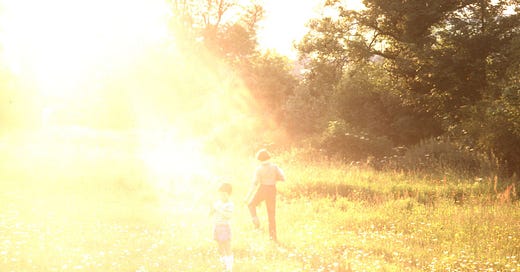My granddad died when I was four. There are a couple of photos of him holding me, plus a few others; one of us, probably taken by my mum, sitting together on a wall near the sea at Skegness with my nan and my aunt Sarah and my aunt Cath. But I think my memories of those times are memories of the photos rather than real memories. My mum would have been o…
Keep reading with a 7-day free trial
Subscribe to The Villager to keep reading this post and get 7 days of free access to the full post archives.




